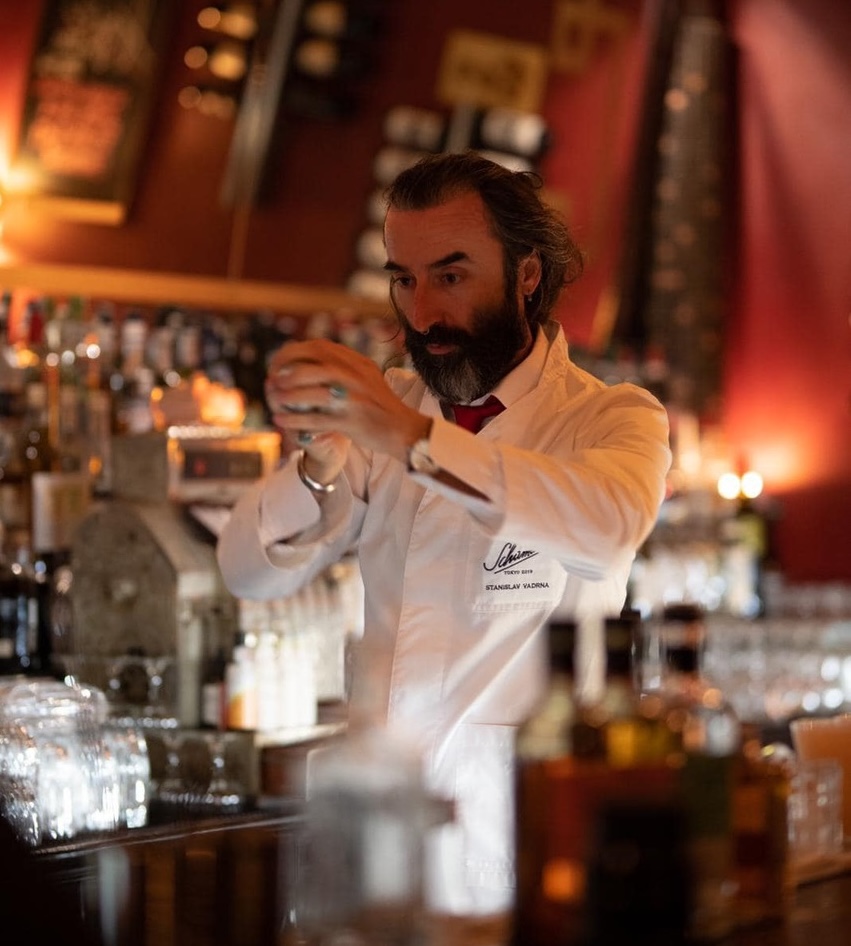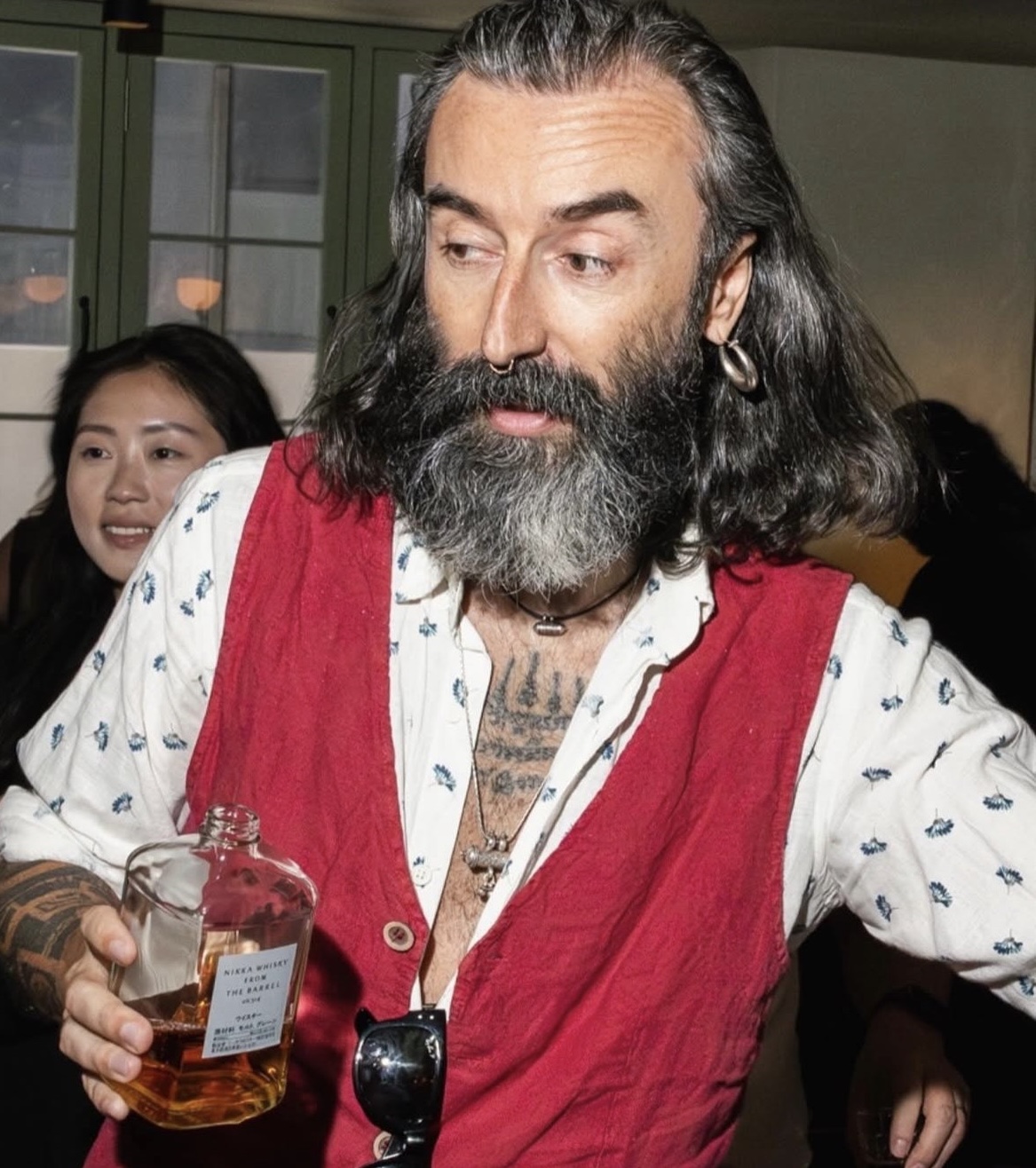Cultural Influences and Universal Hospitality
The Hawaiian concept of aloha also reflects a deep sense of community and care. How has your time in Hawai‘i shaped your understanding of hospitality?
Hawai‘i showed me that hospitality is about openness and generosity of heart—not just for guests, but for the world itself.
Hawai‘i didn’t just shape my understanding of hospitality—it gave me my name: Kaiholomālie, The One Who Peacefully Travels.
It was given to me by Keone Nunes, a revered Hawaiian Kumu and traditional tattoo master, and with it came a responsibility: to carry the spirit of Mea Ho‘okipa—hospitality as a complete giving of oneself.
But what is aloha, really?
It’s not just a greeting. It’s a state of being.
Aloha is “no separation,” and in hospitality, that means serving from a place of openness, with no walls between you and the guest.
Hospitality isn’t about serving someone—it’s about recognizing that we are already connected.
In Hawai‘i, I learned about Mea Ho‘okipa—the highest compliment one can receive.
It means you are an ultimate host, someone who embodies unselfish generosity.
That’s what hospitality should be.
Not a transaction.
Not a performance.
But a way of being.

In blending cultural philosophies, such as Japan’s omotenashi and Hawai‘i’s aloha, how do you create a universal yet personalized hospitality experience?
I don’t just talk about hospitality—I live it. Hospitality isn’t a concept to me; it’s how I move through the world. Whether it’s omotenashi from Japan, aloha from Hawai‘i, or MUHINSHU – No Guest, No Host, they all point to the same truth: hospitality is not a performance. It’s a way of being.
Omotenashi is about deep anticipation—caring for guests before they even realize what they need. But it’s never about forcing service; it’s about attentiveness without intrusion. Aloha goes beyond warmth—it’s about recognizing the deep connection between people, the world, and the moment we share together. MUHINSHU takes it further—there is no guest, no host. There’s just us, right now, in this moment.
I bring this to life in different ways: in Nikka Perfect Serve, bartenders aren’t judged on technical skills alone, but on their ability to truly see and feel the guest. It’s not about showing off—it’s about LISTENING. In my Headless Hospitality workshops, I use headless experiments to help bartenders experience a space beyond ego—where service becomes effortless, and connection is real. In my Kohdo workshops, I guide people to listen to scents the way they should listen to guests—with full presence, without assumptions, without control.
The moment you drop the idea of “serving” and “being served,” hospitality transforms. You’re no longer the host, the bartender, the professional—you’re just there, fully, as a human, with another human. That’s where the real magic happens. You stop “working.” You start being.
All of these experiences shaped what I now call MUHINSHU – No Guest, No Host—the moment where all these traditions merge into one way of being. And of course, flavors change too. A guest in Tokyo will have a different expectation of balance than a guest in Mumbai. A drink in Paris is a different experience than a drink in New York. To truly understand hospitality, you have to understand flavor, culture, and emotion.
Each culture I’ve immersed myself in has profoundly influenced my understanding of hospitality, but my time in Hawai‘i, especially on the island of Kaua‘i, stands out. Aloha is far more than a simple greeting. It’s a way of life that embodies love, peace, and a deep sense of compassion. Embracing Aloha means fostering genuine connection and treating everyone with heartfelt kindness and respect. This taught me that true hospitality isn’t just about service—it’s about creating an environment where every individual feels valued and a true sense of belonging.
Complementing Aloha is the Hawaiian value of Ho‘okipa—the “hospitality of complete giving.” It means welcoming guests and strangers with unconditional generosity, ensuring their well-being without any expectation of return. I once saw this embodied by a local store clerk whose selfless presence led my colleague to offer him a position on the spot. It reminded me that true hospitality radiates from an inner joy of giving.
Then there’s Tahiti. Ever since my teenage years, I’ve been fascinated by Polynesian cultures—their reverence for hospitality, their way of welcoming, their honoring of the moment. I first fell in love with their spirit through Paul Gauguin’s art and books by Miloslav Stingl, a Czechoslovakian ethnographer who was one of my childhood heroes. Their kava rituals, and spiritual connection to land, sea, and each other, left a permanent mark on me.
One of the highlights of my career was being invited in December 2020 to The Brando Resort on Tetiaroa, where I led a bespoke Ichi-go Ichi-e and Mea Ho‘okipa workshop. It was a dream come true—to share hospitality in a place where it lives in the soul of the land itself. Being on Tetiaroa, the island once owned by Marlon Brando, one of my all-time favorite actors, was a moment I’ll carry forever.
In India, particularly in Tiruvannamalai, I encountered Atithi Devo Bhava—“The Guest is God.” Guests are treated with the utmost reverence, often offered the best one has. It’s a sacred duty. It taught me that hospitality can be an act of devotion, where the guest’s comfort becomes a form of respect and spiritual offering.
And then, the Chaiwala culture—one of the most beautiful expressions of human hospitality I’ve ever seen. A chaiwalaisn’t just a tea vendor. He’s a storyteller, a listener, a giver of warmth. I once spent an afternoon watching a chaiwala work—not rushing, not performing. Every cup was an offering. He looked people in the eyes, smiled, joked, listened. At that battered cart, everyone was equal. No bar counter. No Michelin stars. No “experience design.” Just hot tea and an open heart.
In the Middle East, especially among the Bedouins, I witnessed hospitality that is sacred. Guests are given food, shelter, and safety—sometimes before even being asked their purpose. A Bedouin elder once told me, “A guest is a gift from God. Even if he is your enemy, today he is under your roof, and you are responsible for him.” That stayed with me. It taught me that trust and protection are the pillars of true hospitality.
Because at the heart of it all, hospitality is just another word for love in action.
These aren’t just stories. They’re the lifeblood of MUHINSHU – No Guest, No Host—the sacred space where roles dissolve, and only human presence remains. MUHINSHU is not just about presence—it’s about love. Not sentimental love, but the kind that sees, honors, and gives without ego.
Moments That Matter
You often speak about creating moments that matter. Can you share a specific example(s) of a hospitality moment that left a lasting impression on you or your guest?
Or another one, when a guest told me after having our special cocktail of the night at the Paparazzi bar in Bratislava back in 2005, “I don’t remember what was in it, but I’ll never forget how I felt here.” That’s hospitality—it’s not just about drinks, but about the space and atmosphere you create for PEOPLE.

Balancing Efficiency and Connection
For those in the service industry, balancing efficiency and genuine connection can be challenging. What advice do you give to those striving to find this balance?
Forget perfection—focus on presence.
Most people in hospitality are conditioned to perform—to be fast, efficient, and technically skilled. But hospitality is not a performance—it’s an experience. And the most impactful experiences come from presence, not perfection.
That’s why my workshops aren’t about memorizing techniques or following scripts. They’re about freeing yourself up to be fully present with your guests.
I use headless experiments to shift perspectives, Ferasa techniques to sharpen intuition, and Michael Chekhov’s acting methods to help participants become more expressive, natural, and confident in how they use their breath, voice, and body.
The result? A deeper, more human way of serving. A way that’s not mechanical, but alive.
Forget speed. Master rhythm.
Speed is mechanical. It makes you faster, but not better.
Rhythm is alive. It allows you to move with intention, to flow with the energy of the room, to be efficient without losing connection.
I tell young bartenders:
“It’s not about what you want to make—it’s about what the guest truly needs.”
Maybe they need a Negroni.
Maybe they need just a glass of water with lime.
Maybe they just need silence.
Hospitality isn’t about performing—it’s about reading.
Read the room. Feel the energy. Adapt.




